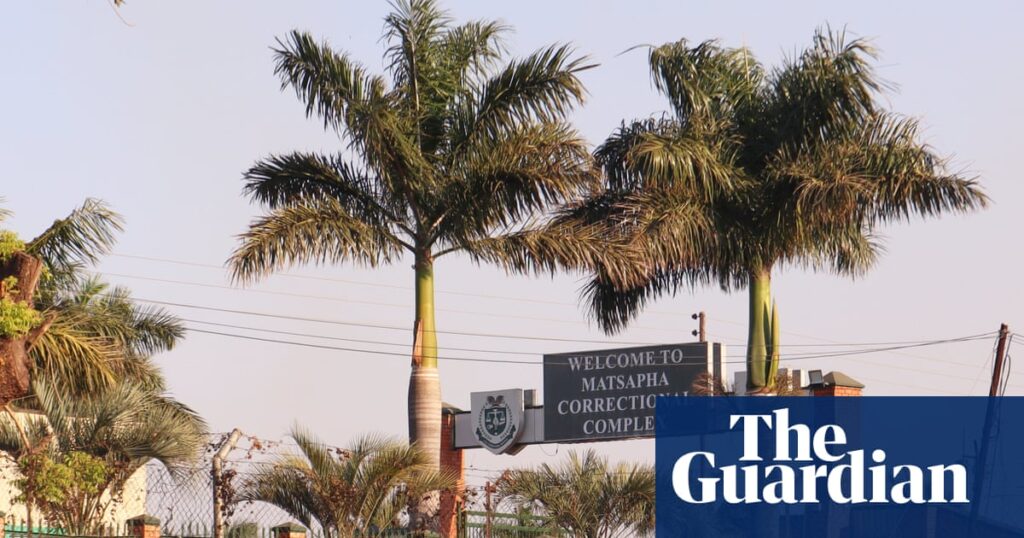A court case challenging Eswatini’s acceptance of five people deported by the US has been postponed until September, after the attorney general failed to show up in court on Friday, according to one of the NGOs that brought the case.
The men from Vietnam, Jamaica, Laos, Yemen and Cuba, who the US said were dangerous criminals, were flown to the small southern African country in July, as the administration of Donald Trump bids to deport millions of immigrants and asylum seekers.
The men’s imprisonment, at the maximum security Matsapha correctional centre, caused outrage in Eswatini, formerly Swaziland, whose king, Africa’s last absolute monarch, appoints the prime minister and cabinet.
A group of NGOs and activists filed a legal challenge last week, arguing that the deal, whose terms have been kept private by the government, was unconstitutional. In legal papers, they said the deportations violated due process and that the prison where the deportees are being held is 190% over capacity.
The Southern African litigation centre (Salc), whose programme manager is one of the plaintiffs, said at the time: “This litigation signals to the continent and the world that African nations cannot serve as dumping grounds for unresolved issues.”
The US had previously deported 252 Venezuelans to El Salvador, where they spent more than four months in a notorious prison before being returned to Venezuela. Eight men were sent to South Sudan after spending weeks in a shipping container in Djibouti. Uganda and Rwanda have also agreed to take in deported migrants.
The high court case has been postponed to 25 September and may be referred to the constitutional court by the high court judges, the Salc said in a Facebook post.
Zakithi Sibandze, national coordinator of rural women’s assembly Eswatini, one of the plaintiff NGOs, said: “This agreement is unconstitutional because it should have been presented to and approved by our members of parliament. That clearly didn’t happen, and you could see our MPs were completely in the dark based on how they grilled the government about it.”
She added: “The government assures us these individuals are in secure facilities, but that does not ease our fears. We have heard stories of criminals escaping from prison. We are not convinced.”
In papers submitted to the court on Thursday, the attorney general argued that the case was not urgent and plaintiffs did not have legal standing. The papers said: “The [constitution] empowers Government to executive international agreements in the name of the crown.”
Melusi Simelane of the Salc, said: “We want the details of this deal … the prime minister and this government, they are withholding information, information that is very pertinent to our rights as citizens.”
A government spokesperson declined to comment given that the matter was in court.

